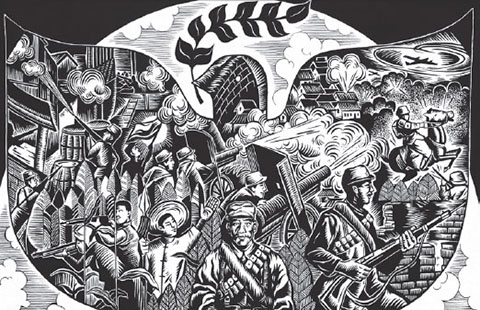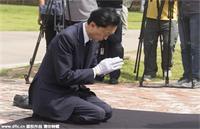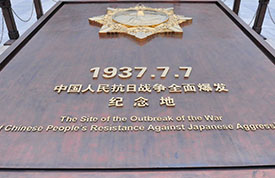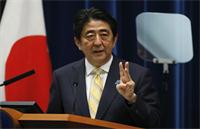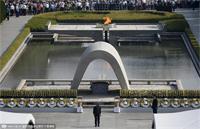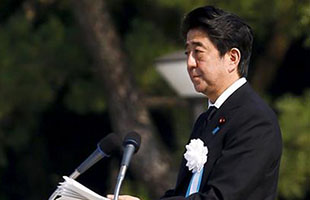Washington's dubious silence on Abe revisionism
[2015-08-14 08:37]
Whatever Abe says on Friday, he is a leader with a distorted view of history and an expanding military, which is a dangerous combination.
China vital to triumph over fascism
[2015-08-14 08:15]By breaking up with its militarist past can Japan improve relations with its Asian neighbors and boost its national image, says expert.
Experts stress importance of Abe apology
[2015-08-13 07:51]Analysts in Europe and Asia stressed the importance of Japanese Prime Minister Shinzo Abe sincerely apologizing for Japan's wartime atrocities in his statement on Friday marking the 70th anniversary of the end of World War II.
Former Japanese PM says genuine apologies should be said to victims
[2015-08-13 07:43]Admittedly, we should never let down our guard given Japan's attempt to relive the militarist past, though we do not have to overstate the possibility of its remilitarization either.
Nation's role critical to Allies' WWII success
[2015-08-13 07:36]China's contribution to the overall Allied victory during World War II is a topic that is gaining increasing historical attention in the West.
Abe's stance on past to decide Japan's future
[2015-08-13 07:36]Abe's apology, if he does render one, will be of great historical significance to all countries that suffered Japanese aggression.
Stubborn revisionism shadows Japan's role
[2015-08-11 07:55]The most heinous aspect of contemporary Japanese revisionism is the denial of the plight of the Korean and Chinese sex slaves.
Japan under pressure to express true remorse for past aggression
[2015-08-11 08:02]Whether Japan chooses the path of pacifism or relives the country's militarist past is not only about China, but also about Asia and the world.
Abe has historic chance to seize
[2015-08-11 08:01]Missing this historic opportunity will simply convince China and the ROK that healthy ties with their neighbor are impossible while Abe is in office.
Will a nuclear attack victim become an attacker?
[2015-08-12 08:06]It is becoming increasingly clear that Japan is close to becoming a major regional military power "thanks to" the efforts of Japanese right-wingers.
Tokyo 'should regain trust' by following path set by Germany
[2015-08-12 07:43]If Japan wants to reconcile with China over wartime history, it should look to the example set by Germany, a senior Chinese scholar of Japan studies told China Daily.
All veterans against invaders deserve thanks
[2015-08-12 07:38]Later generations should always bear in mind what these veterans contributed to the war that prevented this nation from being subjugated by the foreign aggressors.
